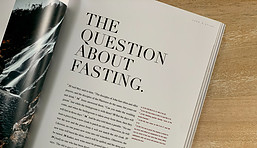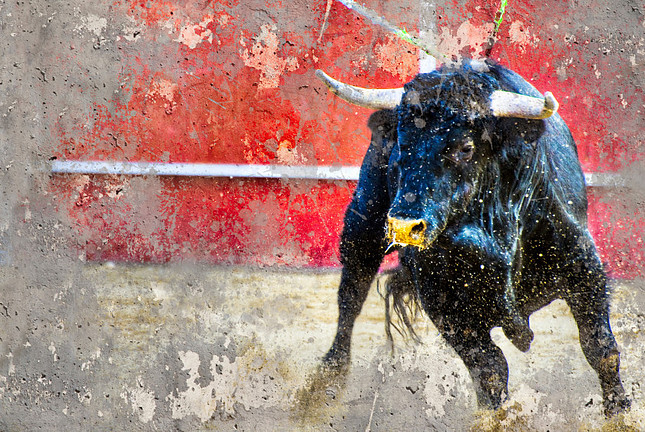 Let me describe a scenario for you: You’re there, in the world, a dazzling human being with limitless potential looking to express your deepest, most brilliant gifts and live an incredible life of purpose and abundance. You have a vision of greatness for your life, one that tugs at your heart strings and fills you with excitement. That vision is your ideal life.
Let me describe a scenario for you: You’re there, in the world, a dazzling human being with limitless potential looking to express your deepest, most brilliant gifts and live an incredible life of purpose and abundance. You have a vision of greatness for your life, one that tugs at your heart strings and fills you with excitement. That vision is your ideal life.
To make this vision a reality you educate yourself on habits that you can apply to increase your effectiveness. You read a myriad of personal development books and watch plenty of videos.
You’ve just learned an empowering habit which is certain to supercharge your power to reach your goals. You’re inspired, determined and take energetic action to implement the idea in your life.
For the first few days you feel great, you’re loving how focused and consistent you are with running the new habit. You are on top of the world.
After a week or two though, you begin to question: Will taking action ever make any difference at all? Why is all my effort not producing results? You’ve put in all this work and yet have not seen any results after two weeks. Why do anything at all?
In your frustration to turn to the usual sedatives to numb the frustration. It can be video games, pornography, comfort foods, shopping, alcohol, cannabis, browsing the internet; whatever gives you a momentary burst of pleasure.
As you immerse yourself in the feeling of numbed out bliss, that longing in your heart is smothered in the cotton balls of comfort. The longing is muffled, but it isn’t extinguished. It stays there, nagging at you even in the darkest depths of sedation.
Then The Sedation Passes…

As this happens, a shroud of guilt descends upon you. You’ve just betrayed your highest self. You just lost more respect for yourself and nothing can shield you from it. Your Higher Self sees how you just treated yourself and does not forgive nor forget.
Defeated, you have lost all drive to continue implementing the habit. You revert back to your old routine, which you know is never going to manifest the life you want to live. But it’s comfortable, and comfort is what you need to further numb the disappointment in yourself.
A few weeks later, you try running the habit again, hoping that this time the result will be different. This time you’ll be able to stick to your commitment. This time you’ll make it to your goals.
End scenario.
Does it sound familiar to you?
If it does, in this article I am going to give you a universal, free, simple and proven technique which has served me and countless others astoundingly well to increase the likelihood of following through with any commitment you make to yourself, whether that be exercising regularly or sticking to a creative routine.
Employing this technique will trick your brain into wanting to do hard things.
It’s called the dopamine fast.
What Is Dopamine?
Dopamine is a neurotransmitter which plays a key role in motivation. It plays a central role in the brain’s reward system, which drives us to do things which are pleasurable. It’s also essential in processes like memory, motor control and learning.
There are many schools of thought regarding how dopamine influences pleasure – I choose to accept the one which places dopamine as the motivator to get us to do a pleasurable activity. Experts on the subject would disagree with me, but this framework for understanding dopamine’s role in the body has served me well, so I accept it.
Cookie Or Celery?
 When we are presented with options for which to choose from, say a chocolate chip cookie and a celery stick, we will be motivated to choose the option which produces the most dopamine. In this case, it’s safe to say that most people would choose the chocolate chip cookie over the celery.
When we are presented with options for which to choose from, say a chocolate chip cookie and a celery stick, we will be motivated to choose the option which produces the most dopamine. In this case, it’s safe to say that most people would choose the chocolate chip cookie over the celery.
This scenario points to a bigger-picture idea. The dopamine we experience when considering two options are relative to each other. This means our dopaminergic system operates through comparison. It compares one option to another and we are motivated to engage in the option which we perceive to be more rewarding. The word “perceive” is key here.
Because as humans, we have the power to change our perception. And when we change our perception, we change our choices.
This is where dopamine fasting comes in handy.
What Is Fasting?
Fasting is an age-old practice of restricting caloric intake for extended periods of time. Ancient traditions have relied on fasting as a method of purifying the body, mind and spirit. The ancient Greek philosophers Hippocrates, Plato, Socrates, Aristotle and Galen all spoke of the benefits of fasting. Today, all major religions practice fasting for spiritual benefit.
Science is now proving what the ancients knew about fasting all along; when we restrict our caloric intake for extended periods of time, even one day, there occur a cascade of beneficial reactions within the body which drive the human organism towards health and well-being.
A “dopamine fast” is simply restricting the activities which are normally responsible for your production of dopamine, thus allowing you to “reset” your dopaminergic system.
It resets your dopamine scale – this means the activities you perceive as pleasurable change. Instead of prefering the cookie, you can begin to prefer the celery.
The Dopamine Fast – A Tool To Take Control Of Your Life
I invite you to watch this excellent video by Improvement Pill to learn more about the dopamine fast:
Remember the scenario I described at the beginning of this article? I was describing something which I’ve lived through many times.
I understand how frustrating it is to desire to change your life with all of your heart only to fail time and time again. Every time we fail to follow through on the commitments we make to ourselves we lose trust in ourselves; we begin to believe we are incapable of following through on our commitments and we lose confidence in our mighty creative power.
If you identified with the scenario I described, you are not alone. And, what’s more, it’s not your fault. You aren’t broken or a failure or permanently stuck in a rut. The modern world is designed to enslave us through cheap pleasure – to make us prefer the easy-but-unhealthy cookie over the hard-but-healthy celery.
What you are is uninformed. You don’t know how to tweak the levers of your humanity to help yourself accomplish your goals; to get your body to work for you rather than against you. And since you don’t know how to do that, you’re constantly trying to paddle up stream in a leaky canoe with a broken paddle.
But ignorance can be fixed. You’re doing it now. The fact that you’ve made it this far into the article is proof that you have the drive to make change in your life.
And the dopamine fast is a universal (it works for anyone), free, simple and proven method we can implement to get ourselves to follow through on our commitments.
I’ll now tell you how it worked for me.
How It Worked For Me
I’m going to be honest. I’ve never done an intentional dopamine fast like the one described in the video.
But just because I’ve never done an intentional dopamine fast doesn’t mean I haven’t done one.
I’ll tell you how that happened.
Several years ago I quit my job and moved to Europe to be with my girlfriend. I had very little money saved up, around 7,000 USD, and I had no job lined up nor any other method of earning money. I began teaching language classes to a few students a week, but that was only enough to cover my expenses.
Suffice to say, my savings slowly dwindled away over the course of two years. Gradually, I became more and more financially limited.
The Power Of Limitation
Being broke imposes tremendous limitations on us. Money is required to survive in civilization. It’s also required to enjoy the luxuries life has to offer. The less money someone has, the greater a proportion of their money goes to surviving and the less they have for luxuries (if they’re smart).
Since I was broke, what options did I have? My girlfriend was supportive of us, but I wasn’t going to take advantage of her support. This meant that I spent my days in Europe doing free things; meditating, reading, going on solitary walks and watching informative videos on YouTube.
I lived a very stimulus-free life, because I couldn’t afford stimuli! Have you ever been totally broke? What options did you have? So much today requires money – not everything, nor the most important things, like true love and friendship.
However, being broke limited my options so that I was doing an involuntary dopamine fast every day. I couldn’t afford video games, alcohol, cannabis, restaurants or paid entertainment – all of these were activities I regularly engaged in when I had money.
So I started doing activities which I ordinarily didn’t choose because they provided me with less dopamine. And you know what happened?
The dopamine produced by those activities became my new dopamine baseline. I didn’t even know about dopamine fasting! I did these low-dopamine activities because I didn’t have any other option.
This is similar to prisoners who always have time to read books and work out, because they have no other options. They turn their limitations into strength. It’s all a matter of perception.

How These Limitations Empowered Me
Day by day I became more consistent in doing hard things. I wrote a book. I stopped drinking. I began waking up at 5 AM to exercise and going on regular runs. I started doing the dishes more.
As a consequence of my financial limitations I was placed into an involuntary, long-term dopamine fast. I was a financial prisoner, but instead of wallowing in misery, I used the limitations to focus my creative energy. My girlfriend and I would do things together when she was home, but while she was away at work I was either teaching languages or figuring out what constructive activity I could do which required no money.
One day, a close friend of mine sent me the above video and I learned about the dopamine fast. Then I began doing intentional, half-day dopamine fasts. I figured out ways I could limit my “cheap” dopamine and favor my “quality” dopamine.
What Are “Cheap” And “Quality” Dopamine?
Cheap dopamine is the kind we get when we engage in activities that take us away from our goals. If your goal is to lose 5 pounds and instead of eating a nutritious meal you eat junk food, you’re getting cheap dopamine. If your goal is to write a paper and instead you dedicate your time to browsing social media, you’re also getting cheap dopamine.
Quality dopamine is the kind you get when you engage in an activity that moves you closer to your goal. If your goal is to write a book, every sentence you write is giving you quality dopamine. If it’s to improve your fitness level, every workout gives you quality dopamine.
They could also be classified as “easy” dopamine and “hard” dopamine.
Classifying dopamine as “cheap” or “quality” isn’t meant to classify them as “good” and “bad”. It doesn’t mean you need to always avoid the “cheap” kind at all costs. The classification is meant to get you reflecting on the activities which contribute or detract from your goals.
If your life is in utter disarray and you are unable to consistently focus on achieving your goals, then you will need to be stricter with limiting the cheap dopamine than someone who is actively working on their goals and is satisfied with the direction of their life.
Once you’re on track to getting your life in order you can indulge in cheap dopamine here and there. Being strict all the time leads to rigidness and brittleness – easy to break. Being flexible is a defining trait of vitality.
Life is meant to be enjoyed – dopamine fasting allows us to focus when we need to so we can enjoy life when we want to. There’s a time for all things.
How To Integrate Dopamine Fasting In Your Life
Again, I’ve never done an intentional one or two-day dopamine fast. What I have done is designed my life to limit my temptations to engage in cheap dopamine activities and favor my engagement in quality dopamine activities. Every workday I’m in a constant state of dopamine fasting – this supercharges my focus and drive.
Here are some ways you can do this for yourself. I’ve divided them into choices you make once (or every so often) and choices you make every day.
Choices You Make Once (Or Every So Often)
- Stop buying sugary foods – Sugar hijacks our reward system – eating sugar feels great, but it comes with a cost; it leaves us lethargic, unfocused and we gain weight. Limiting the purchase of sugary foods at the store means you won’t have them available at home. That imposes a massive barrier to the consumption of sugar at home.
- Get rid of your television – Television has its place, but most of us abuse it. I’ve found that not having a television makes it more likely that I will engage in activities which give me quality dopamine.
- Move to a new place – When we move to a new place we leave behind the environment which triggers our habits. Moving gives us a chance to remake ourselves – I know this firsthand, as I’ve moved to six different cities in three different countries during my adult life. If you’re accustomed to drinking and partying in a big city, moving to a city with a milder party scene will force you to change. You’ll either give up and return to your old life, or you’ll remake yourself.
Choices You Make Every Day
- Restrict the use of your cellphone – On workdays I rarely check my smartphone before 12.00 PM. I do this by keeping my phone as far away from me as possible, in a drawer. Smartphones are designed to distract us from hard activities by giving us cheap dopamine when we use them. Don’t start your day with your phone!
- Do intermittent fasting – This means restricting all caloric consumption to a certain time frame (like from 10.00 AM to 6.00 PM). Read this article from Johns Hopkins to learn more. Food is a reward, it always has been. When we delay eating until after we do our hard activities we have more focus and drive to get them done. Currently, I start eating at around 12 PM, after I’ve gotten a good amount of work done. I stop eating at around 8.00 PM. When I first started intermittent fasting, I had my first meal at 10 am. Start with what’s manageable for you.
- Restrict music – Music is a wonderful part of life, but many of us have turned music into a constant, unending stimulus. Restricting music for parts of the day will also help reset your dopaminergic system.
- Go on walks without technology – With nothing to distract you from your thoughts and/or your environment, walks are a powerful way of resetting our dopaminergic system.
- Go camping – When you’re camping you are in nature and (hopefully) away from overly stimulating technology. You can even go camping with friends. Human interaction produces quality dopamine.

You Have Several Tools At Your Disposal
There’s a reason why the most disciplined people in the world lead ascetic lives – their environment has been engineered to eliminate production of cheap dopamine. Case in point are Tibetan monks who dedicate their entire days to meditating. That lifestyle might sound impossible to you – it’s because your dopaminergic system is tuned to your current lifestyle, not the one of a monk living in the Himalayas.
I just gave you a wide array of tiny (and not so tiny) changes you can make in your life to decrease the amount of cheap dopamine you produce and increase the amount of quality dopamine. I gave you so many because some of them will be easier to implement for some people and harder for others.
For example, for some people, restricting the use of their smartphone might be easy, but they’d rather die before getting rid of their television. For others, it could be the other way around. Personally, doing intermittent fasting came easy, while not buying sugary foods is something I still battle with.
Also, I highly recommend starting small and gradually including these changes in your life. Today, I practice all of them and my ability to do hard things is much stronger than it was when I first started several years ago. I write from experience and I only recommend doing things if I’ve implemented them successfully.
But I didn’t integrate all of these changes into my life in a single day. It took time; months and months, of gradually tuning my habits and environment to favor quality dopamine over the cheap kind. My habits and environment work for me now, rather than against me.
What Happens When You Integrate These Changes
If and when you start integrating these changes into your life two things will happen:
- You will not notice a big change in your ability to do hard things immediately.
- You will get grumpy, frustrated, anxious, bored, angry or a combination of all these things – this can be described as withdrawal.
Don’t Expect Big Changes Immediately
Changing our habits and environment is a gradual process. I can’t stress this enough. Our lives have a momentum to them, like a charging bull, they want to keep moving in the same direction they have been following. If we attempt to wrestle the bull to get it to make a 90 degree turn instantly, we’re going to have a bad time. That’s guaranteed failure.

Instead, successful change happens slowly and incrementally; we entice the bull to change direction degree by degree, or even half a degree by half a degree. This is manageable, and the longer we keep at it, the greater the degree of change, until the bull is moving in a totally different direction than it was at the start.
Like a flight leaving from Los Angeles headed to London; several small course alterations at the beginning of the route means the flight could arrive at Barcelona or Nairobi. Small changes lead to totally different results.
You Will Experience Withdrawal
The human body becomes addicted to routine sensations. This is true even for positive or negative sensations. Someone who regularly consumes news in the evening and gets angry at what he sees is addicted to the anger produced by the news he consumes. It sounds quite perverse, but that’s the short of it.
If that individual removes the stimulus that creates the sensation (the news), he will experience withdrawal. The body expects to receive the stimulus which creates the anger. If it doesn’t get it, it rebels, by manifesting the symptoms of withdrawal.
The body doesn’t care if the sensations its addicted to are positive or negative – it’s conditioned to crave the stimuli it’s accustomed to. The body can also be considered the emotional or subconscious mind – it guides our decision-making below our awareness – that’s why changing the subconscious mind through hypnosis works to rid people of hurtful habits.
But we have free will, we can make small changes which bring about tolerable levels of discomfort. The body will adjust, and once it does, we can implement more changes, allow the body to adjust again, and so on.
If that individual who watches news and gets angry every night wants to change, he could choose to not watch news one night a week. On that night he would experience discomfort, but the body would eventually accept it. Then he could limit news to 5 days a week, then 4, then 3, until he no longer has to watch news and get angry every night.
He has deconditioned the body. This is mind over matter.
By the way, I just described my own process over 2020 and 2021.
Conclusion – Will You Try The Dopamine Fast?
If your life is in utter disarray and you find it impossible to focus on challenging tasks or follow through on your commitments, you will benefit from a dopamine fast. This is guaranteed.
If you’re stuck in a deep rut, doing a one or two-day dopamine fast like the one described in Improvement Pill’s video will give you the ladder to escape from your pit.
But the real challenge is integrating dopamine fasting into your regular life. After all, if you go on a meditation retreat and meditate for 10 hours a day for 10 days and then don’t do anything else afterwards, you might as well not have done the retreat.
We become what we regularly do.
True value lies in habitually implementing what you learn. The changes I listed in this article are powerful; they allow you to enhance quality dopamine and reduce cheap dopamine – as you confront your withdrawal, you gradually improve your power to do hard things.
Doing hard things is crucial to manifesting uncommon success. If you want to live a life that only 1% of people live, you need to be willing to do what 99% of people aren’t willing to do – and those things are hard (like exercising regularly or reading or creating valuable products/services to sell).

Dopamine fasting empowers your ability to do hard things – doing hard things becomes easier. Consequently, when what you consider “hard” becomes “easy”, you discover new challenges which are “hard” for you – in this way we never run out of new mountains to summit. That’s the beauty of being a living being, there is always new potential waiting to be discovered and expressed.
So which of the changes listed will you implement?
To our wealth and success
Interesting food for thought here. I find that enjoying life in moderation is a sustainable path, but without effort, it can be easy to go overboard with some things. Often these lessons are met with consequences that teach lessons and change behaviors. I can also see how eliminating these things would bring an awareness of their role in one’s life.
Hello again Aly, thanks for leaving another comment!
In my limited experience, we men seem to have difficulties with “enjoying life in moderation” – personally, I find that for many things it can be all-or-nothing. I either commit to something 100%, sometimes dipping into excess, or I am totally uninterested. Like with cleaning up or doing good work. Dopamine fasting has enabled me to make difficult choices more accessible to me.